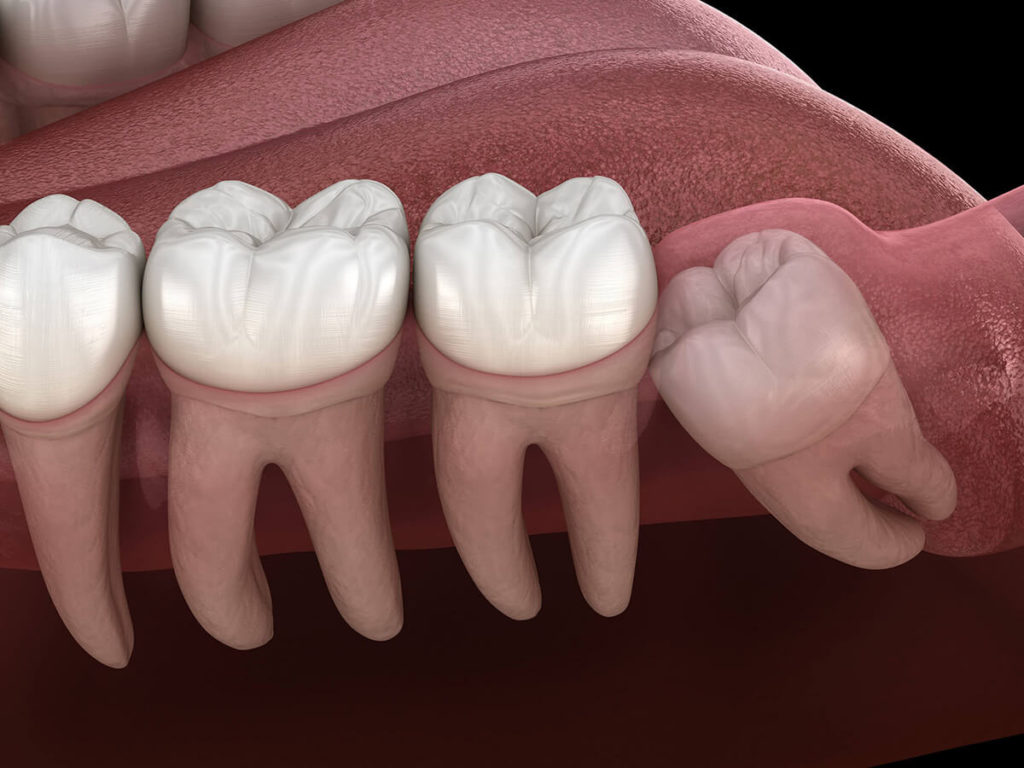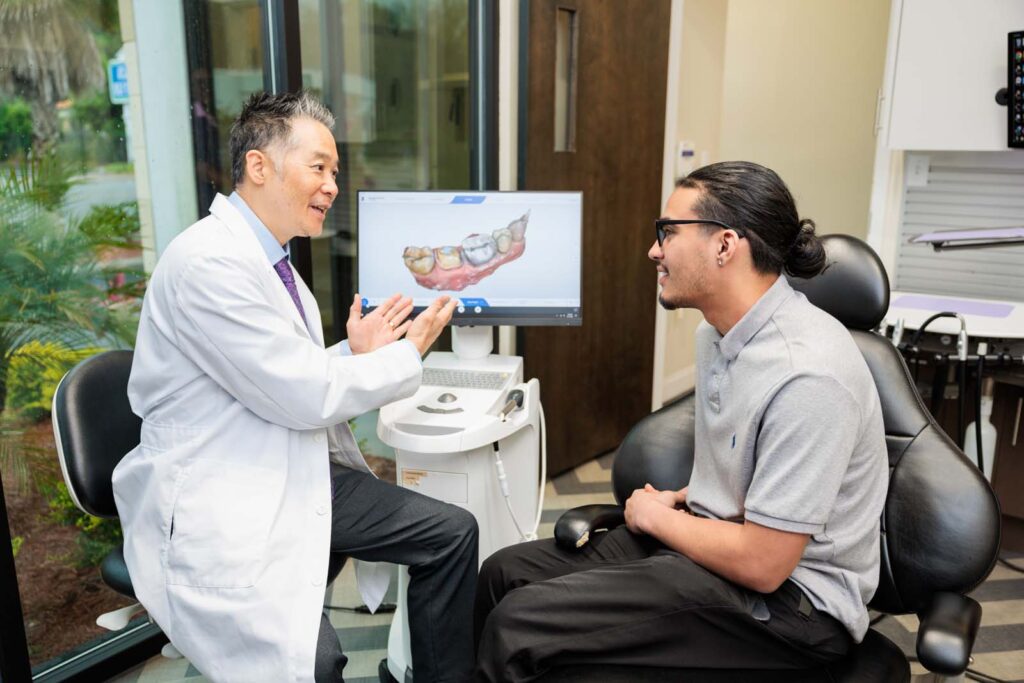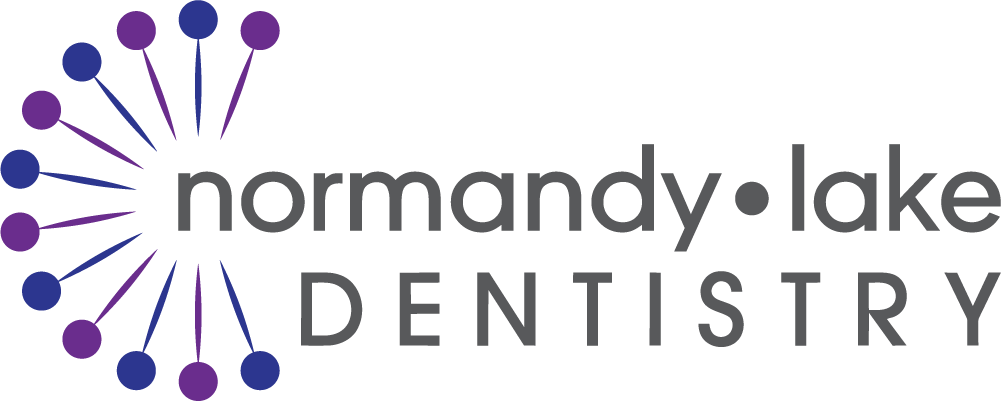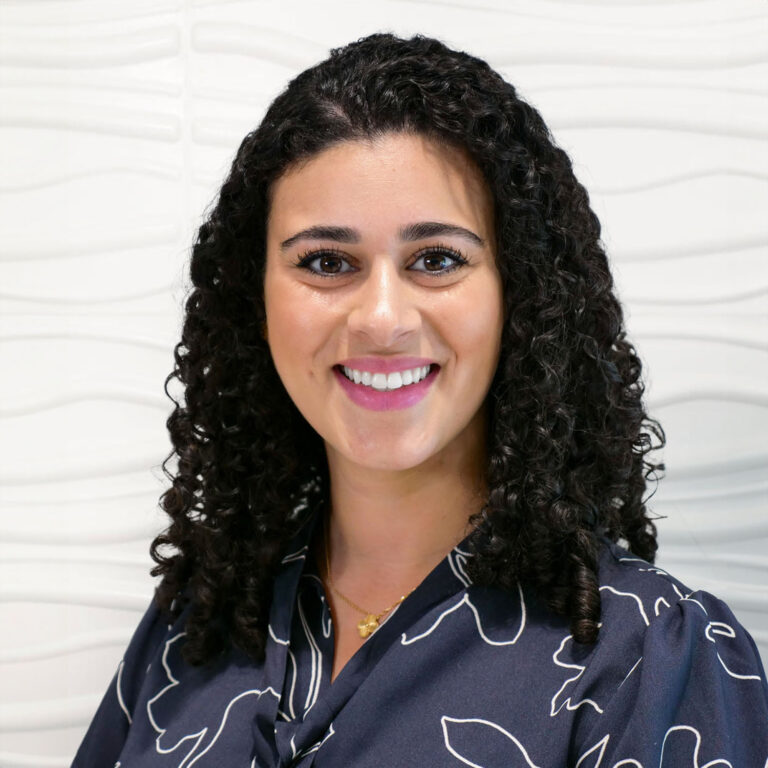Wisdom Teeth Removal
Get third molar pain relief with wisdom tooth removal at Normandy Lakewood Dentistry. We provide expert wisdom tooth extraction services that are safe, effective, and tailored to meet each patient's unique needs—book your appointment at any of our four locations today.
Wisdom Teeth Removal in Jacksonville, Orange Park, & Starke, FL
Wisdom teeth, or third molars, are located at the very back of your mouth. While they don’t always require removal, improperly aligned growth can lead to complications. At Normandy Lake Dentistry, we offer advanced, state-of-the-art oral surgery for wisdom teeth extraction. Our expert team, equipped with advanced technology, provides a safe and comfortable environment so you’ll feel comforable throughout the procedure.
We’re committed to making your experience smooth and painless, providing personalized care throughout your recovery. If you’re experiencing discomfort from your wisdom teeth or suspect you may need them removed, please contact any of our three locations for a consultation or schedule your consultation online. We’re here to help every step of the way.


How Much Does Wisdom Teeth Removal Cost?
The cost of removing a set of four wisdom teeth at our clinic typically ranges from $2,000 to $3,500, depending on the complexity of each individual case. The cost breakdown is as follows:
- Surgical removal per tooth: $420-$700
- Surgical procedure: $173
- Removal of impacted wisdom tooth: $663
We strive to make dental care affordable and accessible, which is why we accept all major insurance plans, as well as various external payment options, including Cherry, CareCredit and Sunbit. We also accept cash, checks, and credit cards. Please contact any of our three locations to discuss your specific insurance coverage or to explore payment plans that suit your financial needs.
Ask the Expert...
A discussion about Wisdom Teeth Removal with Dr. Lee

-
What are wisdom teeth, and why do they often need to be removed?
Wisdom teeth are the third set of molars located at the very back of your mouth. Most people get them in their late teens or early twenties. They often need to be removed because our jaws usually don’t have enough space to accommodate them. When there isn’t enough room, wisdom teeth can become impacted, meaning they’re trapped beneath the gumline, or they can grow in at an angle, causing pain and other dental issues.
-
What are the signs that someone’s wisdom teeth may need to be removed?
Common signs include pain at the back of the mouth, swelling, or tenderness in the gums. Sometimes people experience headaches or jaw pain. In other cases, even if there aren’t noticeable symptoms, wisdom teeth can cause damage to adjacent teeth or contribute to overcrowding.
-
What happens if impacted or misaligned wisdom teeth are not removed?
If left untreated, impacted wisdom teeth can lead to infections, cysts, or even damage to the surrounding teeth and bone. Over time, they can also increase the risk of gum disease or cavities, especially because they’re located so far back in the mouth, making them harder to clean.
-
How is the wisdom tooth removal procedure done?
The procedure is typically done in a dental office under local anesthesia, and in some cases, sedation may be used to help patients feel more comfortable. We make a small incision in the gum to access the tooth, and then it’s carefully removed. In some cases, the tooth might need to be broken into smaller pieces to make the removal easier. Afterward, we close the area with stitches, and patients usually recover within a week or two. Most patients experience some swelling and discomfort for a few days after the procedure, but this can be managed with prescribed pain medication and ice packs.
-
What is the most important thing to know about wisdom teeth?
It’s important to stay proactive. Even if you aren’t experiencing any symptoms, regular dental visits and X-rays can help us identify potential problems with wisdom teeth early on, preventing more serious issues from developing in the future.
Wisdom Teeth Removal Aftercare
After your wisdom teeth removal, following a proper aftercare routine is crucial for healing and minimizing discomfort. Here are the guidelines we recommend to help you recover quickly and effectively:
- Bleeding Management: It’s normal for the extraction sites to bleed slightly after surgery. Bite down gently but firmly on the gauze pads for 30 minutes to stop any bleeding. If bleeding continues, place another gauze and continue to apply pressure.
- Prevent Dry Socket: For the next 72 hours, DO NOT smoke, drink through a straw, drink alcohol, carbonated beverages (“pop”), or hot liquids, blow your nose, or spit excessively. Any of these things may cause the blood clot over the surgery to dislodge from the “socket,” causing a “dry socket, ” resulting in unnecessary pain. If this happens, call our office to see the doctor immediately.
- What to eat after wisdom teeth removal: Stick to a soft or liquid diet for the first few days. Foods like yogurt, pudding, soup, and applesauce are good choices. Remember NO straws.
- Pain Relief: You may experience some pain as the anesthesia wears off. We will provide you with a prescription for pain relief medication or recommend over-the-counter options. Ice packs applied to the outside of your face can also help reduce pain and swelling.
- If you were given medications, take them according to the instructions. If you have pain medications at home, you may take them according to the instructions.
- Call the office for a re-examination if your pain, discomfort, or bleeding continues or worsens.
- Next Day: Tomorrow morning, start rinsing gently with warm salt water (1/4 teaspoon of salt to 1 cup of water) every four (4) hours for two (2) days. DO NOT SPIT.
If any problems or questions arise, please feel free to call the office.
Meet Your Wisdom Teeth Removal Specialist

Dr. Tony Farha
Oral Surgeon
Dr. Farha is an expert in wisdom teeth removal, dental surgery, implant dentistry, and bone augmentation, with comprehensive training and research experience in bone regeneration.
Meet Dr. Farha














